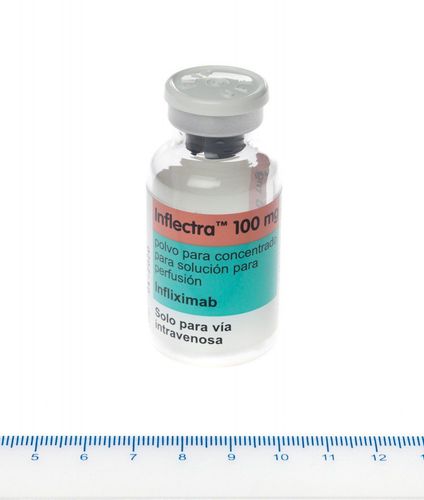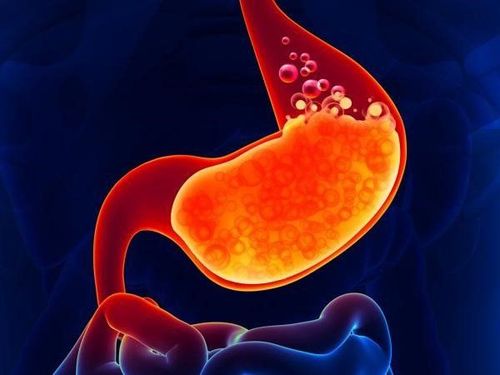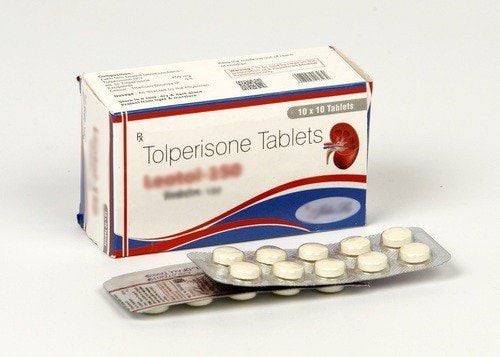This is an automatically translated article.
Zeposia is used in the treatment of multiple sclerosis. It helps to stop the cells of the immune system from attacking the nerves in the brain and spinal cord. In addition, the drug Zeposia is also used to treat some intestinal diseases such as diarrhea, rectal bleeding, stomach pain, ...1. What is the effect of Zeposia?
Zeposia, used to treat multiple sclerosis, helps stop the immune system's cells from attacking the nerves in your brain and spinal cord. Zeposia helps reduce the number of relapses and may prevent the condition from getting worse. In addition, Zeposia is also used to treat certain intestinal diseases such as ulcerative colitis, diarrhea, rectal bleeding, and stomach pain.2. How to use and dosage of Zeposia
Zeposia drug is in the form of capsules, taken orally. You need to use the medicine regularly to get the most effective treatment. Dosage will be based on your medical condition and response to the treatment regimen. You should not arbitrarily increase the dose of Zeposia more than prescribed because this can cause an overdose and increase unwanted effects.
3. Undesirable effects of the drug Zeposia
Some unwanted effects when using Zeposia include:
Back pain; Dizziness, lightheadedness; Weakened immune system : Increased risk of infection during treatment and 3 months after the last dose; Allergic reactions: Edema, itching, rash, difficulty breathing, dizziness,... Serious side effects such as fainting, difficulty breathing, fatigue, photosensitivity, vision changes, mental changes, convulsions and severe headache,... If experiencing these symptoms, the patient should stop using Zeposia and notify the doctor for appropriate treatment.
4. Some notes when using Zeposia
Some notes during taking Zeposia include:
You need to inform your doctor about your history of hypersensitivity to Zeposia or any other allergies. Zeposia may contain inactive ingredients and could cause an allergic reaction or other serious problems. You need to list the medications you are taking for your doctor to understand including prescription and over-the-counter drugs, preservatives, herbs and supplements, foods, dyes, etc. .. Report medical history especially respiratory problems such as asthma, bronchitis, emphysema, sleep apnea, infections including hepatitis and tuberculosis, diabetes mellitus, a certain eye problems such as macular edema, uveitis, heart problems such as slow heartbeat, heart failure, previous heart attack, chest pain, high blood pressure, liver problems, smoking and stroke stroke,... Zeposia can increase blood pressure. Therefore, it is necessary to monitor blood pressure regularly. Zeposia medicine rarely causes serious liver disease but should be taken into account if any unusual symptoms such as nausea, vomiting, loss of appetite, stomach pain, abdominal pain, yellowing of the eyes, skin and dark urine should be observed. ,... Zeposia can weaken the immune system during treatment and for 3 months after the last dose. This can make you more susceptible to infection or worsen any existing infections. Therefore, avoid contact with people who have chickenpox, measles, and flu and need to be especially monitored for signs of infection such as sore throat, cough that won't go away, difficulty breathing, fever, chills, cold symptoms, sores. ulcers, blisters. Do not take zeposia during an infection. Zeposia may increase your risk of a rare brain infection (progressive multifocal encephalopathy PML). Therefore, get medical help immediately if you have any new or worsening symptoms that persist for several days such as clumsiness, problems with strength, balance, speech, vision or thinking. . Administer the necessary vaccinations before starting treatment with Zeposia. If a live attenuated vaccine is given, it should be given at least 1 month prior to initiation, and should be avoided during treatment and for 3 months after the last dose of Zeposia. While taking Zeposia should avoid certain foods and drinks that are high in Tyramine because they can increase blood pressure such as dried meat, sausages, cheese, canned fish, foods containing a large amounts of yeast such as kimchi, sourdough, sauerkraut, kimchi, soy sauce, tofu, red wine, beer,... Before you start taking Zeposia, your doctor will order you to do tests such as: total blood cell analysis, liver and kidney function tests, electrocardiogram, blood pressure,... For pregnant women and those planning to become pregnant, Zeposia should not be used. Because the drug can harm the unborn baby. Refer to effective forms of contraception.
5. Drug interactions
Drug interactions can change the way a drug works or increase the risk of serious unwanted effects. Certain medicines should not be used at or around the time of treatment with Zeposia. However, in some other cases, 2 different drugs can be used together even if they can interact. In these cases the doctor needs to change the dosage or take other precautions. Therefore, let your doctor know what medicines and supplements you are taking.
Some drugs that can interact with Zeposia include:
Drugs that weaken the immune system or increase the risk of infection such as Natalizumab, Rituximab and Alemtuzumab,... MAO inhibitors such as Isocarboxazid, Linezolid, Metaxalone, Blue methylene, Moclobemide, Phenelzine, Procarbazine, Rasagiline, Safinamide, Selegiline and Tranylcypromine,... To avoid interactions, before being prescribed Zeposia, patients should inform their doctor about the drugs they are using, including functional foods as well. The doctor will base on that to prescribe the appropriate Zeposia.
6. Storing zeposia
Zeposia drugs are preserved at medical facilities with the following conditions:
Stored at room temperature; Avoid light; Avoid humid places; Do not store Zeposia in a humid place or in the freezer. Because each type of Zeposia medicine will have a different way of preservation, please read the instructions for use and storage carefully. Also, keep Zeposia out of the reach of children and family pets. After the drug has expired or is damaged and cannot be used anymore, it should be disposed of according to the correct procedure. Do not arbitrarily dispose of Zeposia into the environment such as a water pipe or toilet unless requested. Please consult your waste disposal company or pharmacist on how to safely dispose of Zeposia to help protect the environment.













